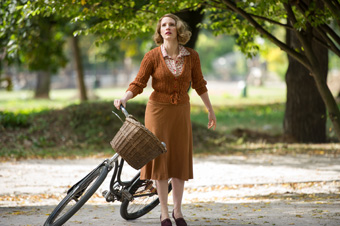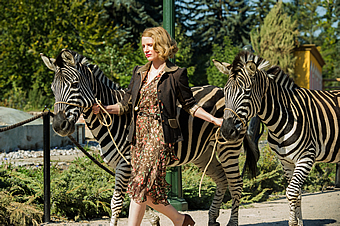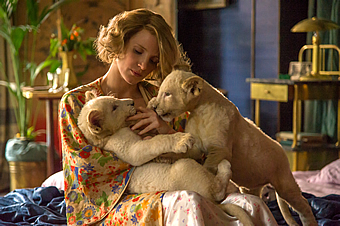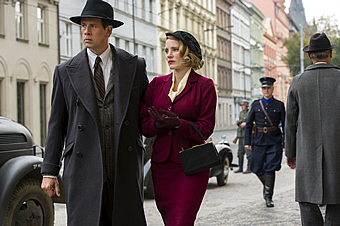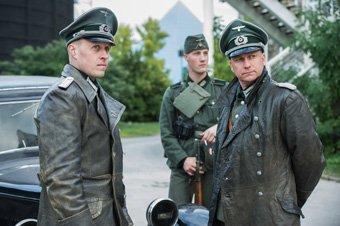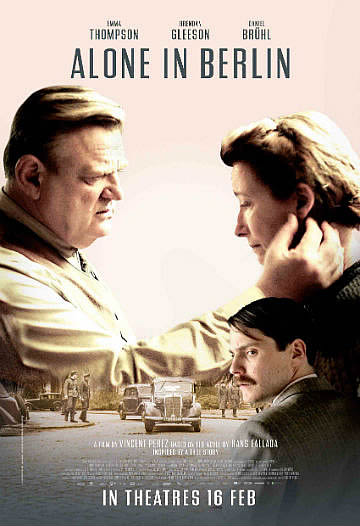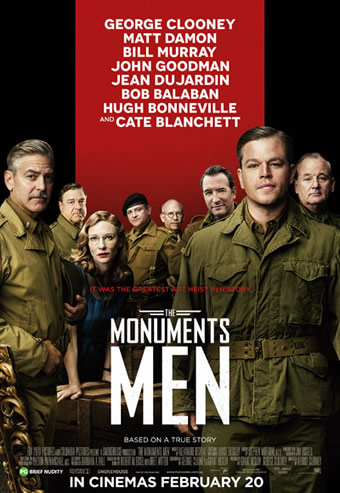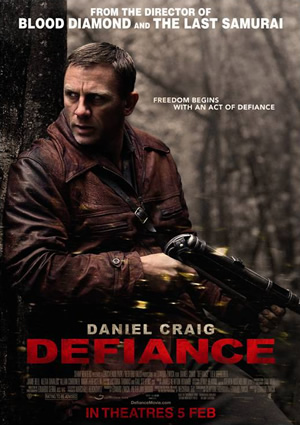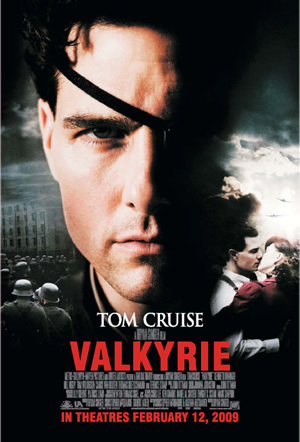THE ZOOKEEPER'S WIFE (2017)
Genre: Drama
Director: Niki Caro
Cast: Jessica Chastain, Daniel Bruhl, Johan Heldenbergh, Efrat Dor, Iddo Goldberg, Shira Haas, Michael McElhatton
Runtime: 2 hrs 6 mins
Rating: NC-16 (Some Nudity)
Released By: Cathay-Keris Films
Official Website:
Opening Day: 30 March 2017
Synopsis: Based on the New York Times best seller, The Zookeeper's Wife is the moving, true story of a husband and wife's compassion and incredible will to save hundreds of Jews during WWII . After the brutal Nazi invasion of Poland levels Warsaw and ravages the city zoo, zookeeper Jan Zabinski and his wife Antonina are left to salvage what's left of the grounds and the few surviving animals. As the Nazis begin to tear apart the Warsaw ghetto and deport its Jews to certain annihilation, Jan and Antonina risk everything and smuggle as many victims as possible into their zoo. In the face of utter hopelessness, Antonina finds the strength to keep spirits high through music, conversation and even laughter when they dare to let their guard down. Ever on the edge of being discovered and against all odds, Antonina and the sheltered Jews manage to restore each other's faith in humanity and together plot a harrowing escape to freedom.
Movie Review:
Based on the non-fiction book of the same name, ‘The Zookeeper’s Wife’ recounts the true story of the husband-and-wife couple, Jan and Antonina Żabiński, who secretly sheltered Jews during the German invasion of Poland from 1939 to 1945 on their premises of the Warsaw Zoo, thus enabling these Polish Jews to escape from the infamous Warsaw Ghetto and the eventual extermination of the place as well as its inhabitants within. Why the title honours Antonina and not Jan is not quite clear, given how both have been equally recognized as ‘Righteous Among the Nations’ at Yad Vashem (Israel's official memorial to the Jewish victims of the Holocaust) and indeed are portrayed playing complementary roles in the years-long operation – while Antonina would remain at the zoo to safeguard them (i.e. to find them room and food, keep their spirits up, and most of all to hide them from the Nazis), Jan would be the one smuggling the Jews out of the ghetto under the guise of collecting unused scraps to feed the pigs they had turned to rearing in order to ensure that the zoo remains of functional value to the Germans.
At its heart, this is a celebration of ordinary heroes – that is, of ordinary men and women who have displayed extraordinary heroism during extraordinary times. Such tales are often told with sycophantic adulation, which runs counter to the nature of their character/s and ultimately leaves one feeling patronized. Thankfully, its director Niki Caro knows her way around such celebrations of heroism (as evinced by her previous works like ‘Whale Rider’, ‘North Country’ and ‘McFarland, USA’), placing emphasis on the difficult circumstances of the war in order to demonstrate the Żabińskis’ bravery rather than on exalting the characters per se. Scenes of life pre- and post-invasion, of life behind the ghettos and of the nail-biting process of sneaking the Jews out of the ghettos are played out with attention to detail and realism, just so the context under which the Żabińskis were living under as well as the danger they were putting themselves and their only son Ryszard under are felt keenly and profoundly – hence illuminating the spirit of valour and self-sacrifice their deeds exemplified.
Those who have read Diane Ackerman’s source novel will probably know that her narration is as much about Jan and Antonina Żabiński as it is about Lutz Heck, the duplicitous head of the Berlin Zoo whom the Żabińskis first meet before the war and who eventually turns out to be one of the prominent figures of the German war office in Poland. Like in the book, Lutz aimed to recreate pureblood versions of certain extinct species; and for dramatic impact, instead of transporting some of the cattle from the Warsaw Zoo to run his animal eugenics programme back in Berlin, Lutz (as played by Daniel Bruhl) does so right on the grounds of the former. That deviation allows screenwriter Angela Workman to fashion a rather unnecessary subplot between Antonina and Lutz, which sees Lutz develop a personal liking for Antonina and concomitantly engendering marital tension between Jan and Antonina. As distracting as that may be, it is consoling that neither Lutz nor the Germans in particular are demonized; in fact, the former’s onscreen representation shows an unexpectedly benevolent side at the end that may in fact be kinder than his real-life person.
In turn, the horrors of the Holocaust are depicted through a fictional character which Caro has said was her idea. Played by Israeli actress Shira Haas, Urszula is a barely teenage girl whom Jan encounters on his maiden trip into the ghetto bleeding and shaken after being raped by two German male soldiers. Against better judgment, Jan conceals her right under the driver’s seat of his truck (under his son’s feet, no less) in order to help her escape from any further misery. Though manipulative, Urszula’s addition is arguably an effective device through which Caro conveys the magnitude of the Żabińskis’ rescue efforts – not only is she intended to be emblematic of the suffering and subsequent trauma that the Jewish children no doubt endured during the German invasion, she is the face of the persecuted Jewish, personifying the ‘human’ in humanity. Her recovery is also representative of the hope that the Żabińskis’ act of wartime courage gave to the 300 Jews that they saved in the six years of the German occupation.
As with such historical dramatisations, the strength of the performances determines whether the film itself ends up being compelling – and sure enough, that ‘The Zookeeper’s Wife’ is fascinating to watch from start to finish is testament to the strong cast. However cynical you may be of Jessica Chastain’s casting as Antonina which therefore requires the Hollywood actress to put on a Polish accent, she is undeniably captivating as the eponymous lead, channeling grit and vulnerability in equal measure as she fleshes out her character’s fears, anxieties and convictions. Her stripped-down performance complements that of Belgian actor Johan Heldenbergh, who may not have matinee-idol looks but certainly the gravitas to play a resolute volunteer for the underground Polish resistance. Among the supporting actors, Bruhl and Haas are the standouts, the former exercising admirable restraint in what could have been a traditionally villainous act while the latter surprisingly nuanced in her portrayal of the most visible victim of Nazi sadism.
Many a story has been told of ordinary men and women who have displayed extraordinary heroism during the Holocaust, and ‘The Zookeeper’s Wife’ stands out among one of the better ones by simply telling its story well without embellishment or worse exaggeration. Even better, it underscores the emotional devastation of war without violence or gore; rather, with emphasis on authenticity, the film lays bare the communities torn apart when the Germans invaded, the sheer hopelessness of those who were oppressed, and the sacrifices that one must sometimes make in order to achieve a loftier, nobler purpose during such challenging times. Especially when some world leaders seem to have forgotten the importance of world peace, this is as apt a reminder as any that the cost of war is immeasurable, immutable and perhaps even irreversible.
Movie Rating:




(Told with grace, empathy and conviction, this celebration of ordinary heroism is elevated by strong performances by Jessica Chastain and her Belgian co-lead Johan Heldenbergh)
Review by Gabriel Chong
You might also like:
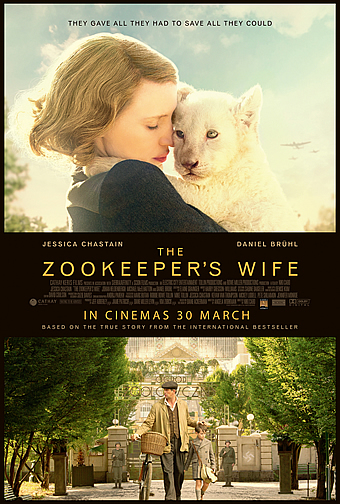
Movie Stills
